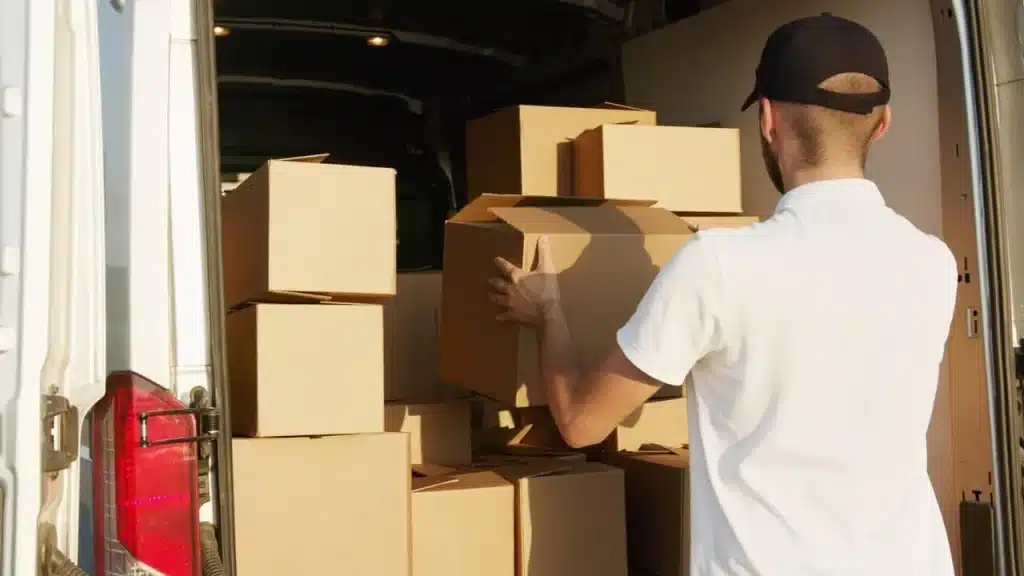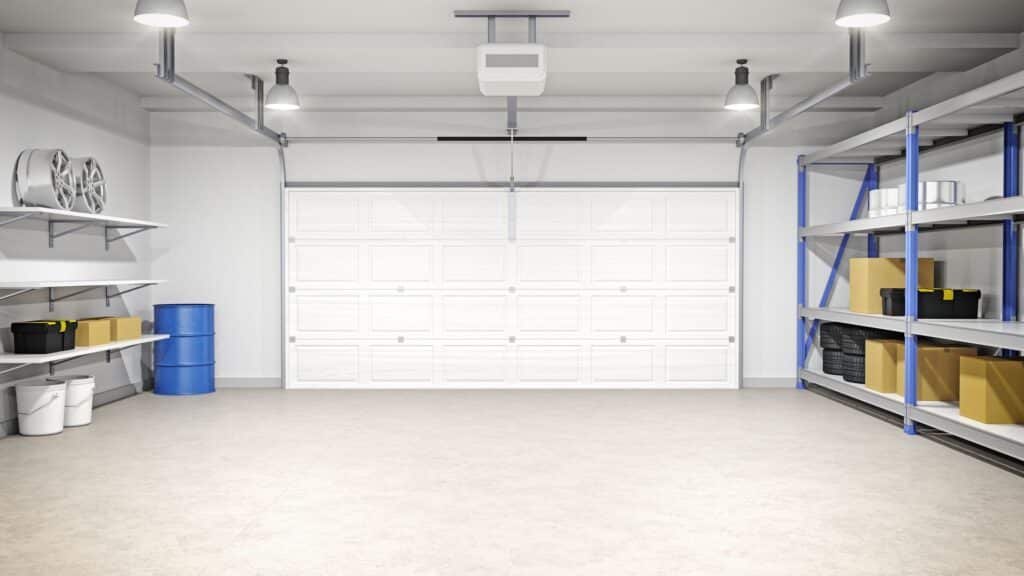Choosing the Right Moving Service for Your First Home
Moving into your first home is an exhilarating journey, filled with dreams and expectations. For first-time homebuyers, the process of transitioning from an old residence to a new one symbolizes a significant milestone.
However, this exciting venture can also bring a fair share of stress, particularly when it comes to the logistics of moving. Choosing the right moving company becomes a critical decision that can impact the ease and success of your move.
First-time homebuyers often face a unique set of challenges and anxieties. The unfamiliarity with the buying and moving processes can make the experience seem daunting.
From selecting the right neighborhood to financing and finally moving, every step is crucial and can feel overwhelming. A reliable moving company understands these challenges and can provide invaluable support to first-time homebuyers.
Different Types of Moving Services

Full-Service Movers
Full moving services have the most complete relocation packages. In addition to just delivering your goods, they will also handle packing, loading, unloading, and unpacking them.
These carriers come with everything your move may need, including cartons, adhesive tapes, and cushioning materials.
This option costs more but it saves time, especially for someone who does not want to be physically involved in moving or is short on time. It’s particularly beneficial if you have bulky or delicate items that require professional handling.
Self-Service Movers
This falls between two stools involved in full-service movers and do-it-yourself moves. These types of companies bring a shipping container or trailer to your house which you pack and load by yourself.
After you are through with it, they will come back for it and transport it to your new home district. As a result, this strategy cuts down on expenses but forces a great deal of effort from you when packing as well as organizing.
DIY Truck Rental
If you prefer doing things yourself then renting a moving truck can save you some money. You would have to ensure that all packaging materials are available before starting with any process of moving belongings out of your current residence into a truck for transportation to another location by driving there yourself and assisting in unloading thereafter.
This approach provides maximum flexibility at the least cost although this involves lots of time consumption as well as manual labor too so it suits best smaller moves such as those made along with friends and relatives helping out in terms of their readiness.
Researching Moving Companies
 Once you have a clear idea of what your move entails, it’s time to start looking for a moving company. This step is vital for first-time homebuyers to ensure the move is as stress-free as possible.
Once you have a clear idea of what your move entails, it’s time to start looking for a moving company. This step is vital for first-time homebuyers to ensure the move is as stress-free as possible.
Check Reviews and Ratings
You can start by checking reviews and ratings on sites like Yelp, Google, or Better Business Bureau. Look for companies with a history of being dependable and having satisfied customers. Especially those involving first-time homebuyers can give you an indication as to how the organization deals with similar situations.
Verify Licenses and Insurance
Ensure that any moving company you consider is licensed and insured. This is crucial for protecting your belongings during the move. You can check the U.S. Department of Transportation’s website for their DOT number, which verifies they are a registered mover.
Getting Quotes
It is important to choose the right mover when relocating to your first home so that everything goes well without breaking the bank. It is necessary to obtain quotes from several service providers to compare prices and services offered.
By going through this process, one will be able to work out which arrangement offers the best value while ensuring they are aware of what exactly they pay money for.
Request Detailed Quotes
Firstly contact not less than three moving companies for detailed written quotes. These quotes should be based on a complete inventory rather than general estimates.
A good idea would be preparing a list giving details about what it is you are relocating including size as well as number of items being moved thus; making it easier for movers to estimate better how much would cost them to pack materials used in transportation day; so that there won’t any unexpected charges because someone misunderstood amount required moving or such handling specifications.
Compare Services and Prices
It is time to compare them when you have quotes from a few organizations. Take into consideration all the other things in addition to the price that are included in each quote.
Some movers will offer comprehensive services such as packing, unpacking, temporary storage, or special handling for valuables and fragile items. These services can be of great value; they may save you time and stress.
Preparing for Moving Day

Confirm Details
A week before moving, it is good to confirm all logistics with your chosen mover. Confirm the time of arrival, double-check that they have the right address for your new home, go through any special instructions or last-minute changes to your inventory or confirm contact information for the day of the move.
Pack Smart
If you decide to pack your belongings yourself, start early. Use sturdy boxes and packing materials, and label each box clearly with its contents and the room it’s destined for. This will make unpacking much easier.
Moving Day and Beyond
Moving day can be hectic, but with careful planning, you can keep your stress level manageable.
Supervise the Move
While the movers are professionals, it’s still wise to supervise the process. This way, you can direct where large items should go and make sure that nothing is overlooked during loading and unloading.
Final Walkthrough
After the movers are finished and before they leave, walk through at least once just to make sure nothing has been left behind in your old home. In addition, inspect both your new house and delivered items for any damages that might have occurred while moving out.
Settling In
Once the move is over then begins the journey of making a house a home. Therefore take some time to unpack and arrange everything slowly. Focus on setting up crucial areas like the bedroom, and kitchen first, and the transition of coming into the new space can be smooth and comfortable.
How to Choose a Reliable Moving Company
 Selecting the right moving company is crucial for a stress-free move. Here are the steps to ensure you choose a reliable service:
Selecting the right moving company is crucial for a stress-free move. Here are the steps to ensure you choose a reliable service:
Research Potential Movers
Begin by making a list of prospective movers. Look for those with good reputations, supported by reviews and testimonials from past clients. Websites such as Yelp, Google Reviews, or Better Business Bureau can give you an idea of the firm’s reliability or customer service record.
Check for Registration and Licensing
A reputable moving company must be registered and licensed. For interstate moves, check if the mover is registered with the Federal Motor Carrier Safety Administration (FMCSA) by looking up their U.S. DOT number. This ensures they are legally compliant to operate across state lines.
Evaluate Their Experience and Expertise
Consider the company’s experience, especially with moves similar to yours. Companies that regularly handle first-time homebuyer moves are likely more attuned to the specific needs and concerns of first-time homeowners, such as tight timelines or budget constraints.
Request In-Home Estimates
Get estimates from at least three different companies who will come into your house before deciding on whom to hire. This way they can give you an accurate quote since they will assess both the volume and nature of items being transported.
Be careful about those who give you quotes on the phone without seeing your inventory because it is highly likely that they are not professionals.
Understanding Moving Insurance Options
Moving insurance is critical as it protects your belongings from damage or loss during the move. Here are the main types of moving insurance and protections to consider:
Released Value Protection
This is the most basic coverage offered by moving companies, often included at no additional cost. It offers minimal protection, compensating you according to the weight of the item, not its actual value (e.g., 60 cents per pound per item).
Full Value Protection
Compared to released value, this policy gives better coverage that may include replacing items, repairing their damages or paying you back what you paid for them in total. This option is recommended for those relocating expensive items but it incurs more expenses.
Third-Party Insurance
If you want coverage beyond what the moving company offers, consider purchasing third-party insurance. This can be particularly useful for very valuable items like antiques or expensive electronics. Check if your homeowner’s insurance provides options for moving or if you can get a rider for additional protection.
Conclusion
Moving into your first home is a thrilling adventure, and choosing the right moving company can make all the difference, making it no surprise that people love moving there, drawn by the promise of new beginnings and exciting opportunities.
To recap, start by thoroughly researching potential moving companies, focusing on their reputation, reliability, and experience with similar moves.
Ensure they are properly registered and licensed, and always request in-home estimates to get the most accurate pricing. Don’t hesitate to ask pointed questions about their coverage options, additional fees, and handling of special items.
Equally important is understanding your insurance options. Whether it’s the basic coverage provided by the movers or a more comprehensive third-party insurance plan, make sure you are adequately covered.
This can protect you from unforeseen losses and provide peace of mind as you transport your belongings to your new home.







